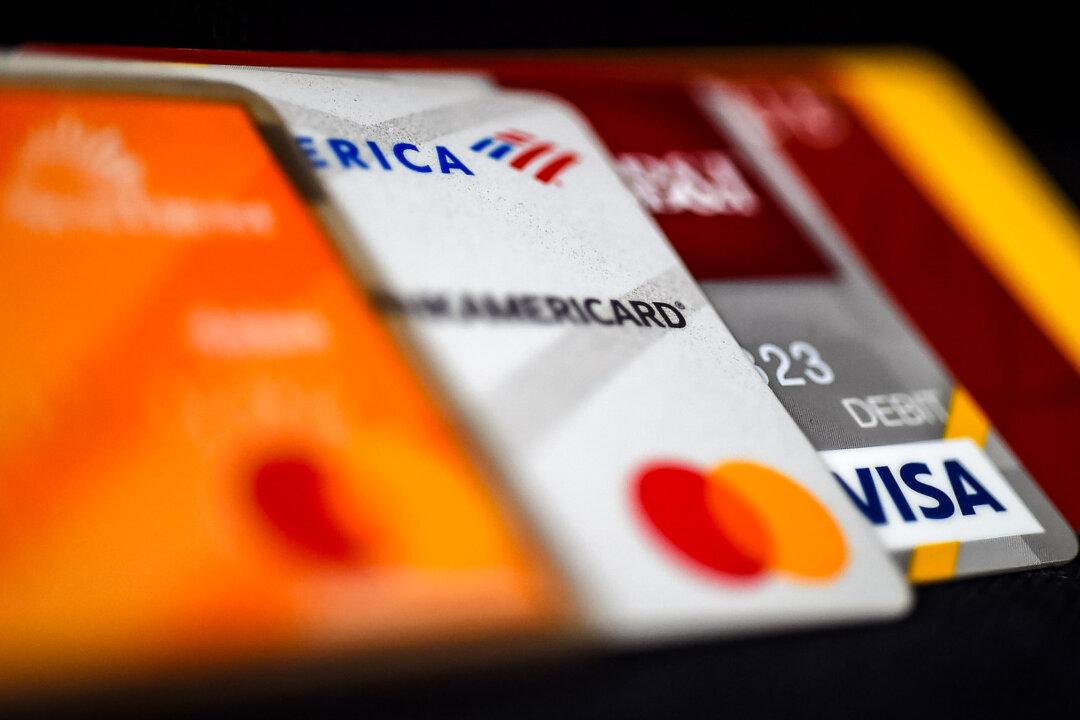A just-released report from Scholaroo indicates that the U.S. national average for credit card debt has escalated to $6,555, with New Jersey residents leading the nation with an average debt of $8,155 per credit card. Scholaroo, a national firm matching college students with potential scholarships, surveyed more than 2,000 people across the United States during the final quarter of 2023.
Coming in at a close second is Connecticut, with an average debt of $8,011 per credit card, followed by Maryland, New York, and Alaska—all with average credit card debts of more than $7,600 per card. Rounding out the top 10 states are Colorado, California, Massachusetts, Florida, and Hawaii, all with average credit card debts in excess of $7,400.
“New Jersey residents’ debt surpasses the national average by 24 percent, while Mississippi has the lowest average credit card debt, with debtors owing just $5,186—20 percent less than the national average,” the report states.
Kentucky and Indiana also fell on the lower side, with an average of $5,295.

Bruce McClary, senior vice president of membership and media relations for the National Foundation for Credit Counseling (NFCC), told The Epoch Times that amount of debt is not surprising as many people are forced to use their credit cards just to stay afloat. “Things are so much more expensive than they were three years ago,” he said. “The runaway inflation is affecting grocery prices, and we’ve seen a roller-coaster ride for gasoline prices. Many people don’t have the money in their budgets for these added expenses and so they’re using credit cards and making minimum payments each month.”
Based in Washington, the NFCC was founded in 1998 as a nonprofit credit-counseling source for people who need help in managing their debts. Its recently released Harris poll also surveyed 2,000 adults nationwide and found similar outstanding debt values. But the overall results were even more surprising: Nearly 32 percent of Americans are just getting by financially, while 62 percent fear that government instability will hurt their finances in the next 12 months.
“The biggest concern is that if people continue to carry that much debt from month to month, making only the minimum payments required, it could take years to pay it off, and they’ll find it extremely difficult to save any money,” Mr. McClary said.
The Harris poll also indicated that 31 percent of Americans don’t pay all their bills on time and that only 42 percent have a budget and keep track of spending. Almost 40 percent of those surveyed are concerned that the money they have or will save won’t last.
The poll found that the most affected groups are people who are single, rent instead of own, are parents of children under 18, and have incomes of $50,000 or less.
“Today’s higher rents may also be responsible for this credit card debt situation,” Mr. McClary said. “Most are paying way more than the recommended percent of their income toward rent, so now they’re faced with managing the rest of their expenses like groceries, utilities, gas, medical bills, and more. They’re finding they have to rely on the credit cards to help make ends meet.”
As a result, many have already been priced out of the ever-skyrocketing housing market.
“Ten years ago, Seattle was one of those cities considered to be affordable, but there’s been such a tremendous increase in rents there that many people are no longer able to afford buying or even renting there,” Mr. McClary said.
The Federal Trade Commission’s (FTC’s) Consumer Advice Department recommends that those having difficulty making even the minimum monthly credit card payments first talk with the company to ask for its help.
“Your goal is to work out a modified payment plan that lowers your payments to a level you can manage,” the FTC’s website states. “Creditors may be willing to negotiate with you even after they write your debt off as a loss, as you will still owe that debt.”
The NFCC also provides renegotiation services with credit card companies to reduce the monthly interest rates, which can sometimes be as high as 20 percent.
“What we try to do is help people regain control of their unmanageable debt by looking at their income and financial obligations and work out a livable budget,” Mr. McClary said. “It’s like a tire finally getting some traction after spinning in the mud for so long.”

There seems to be no slowdown in Americans’ love of credit cards. According to the Scholaroo report, last year, almost 45.5 percent of the U.S. population opened at least one new credit card account, resulting in some 542.6 million new accounts by the end of 2023. While more than 50 percent of Americans prefer using debit cards for their day-to-day expenses, credit cards stand as the second most favored choice, with 36 percent of the population using them for their daily transactions.






